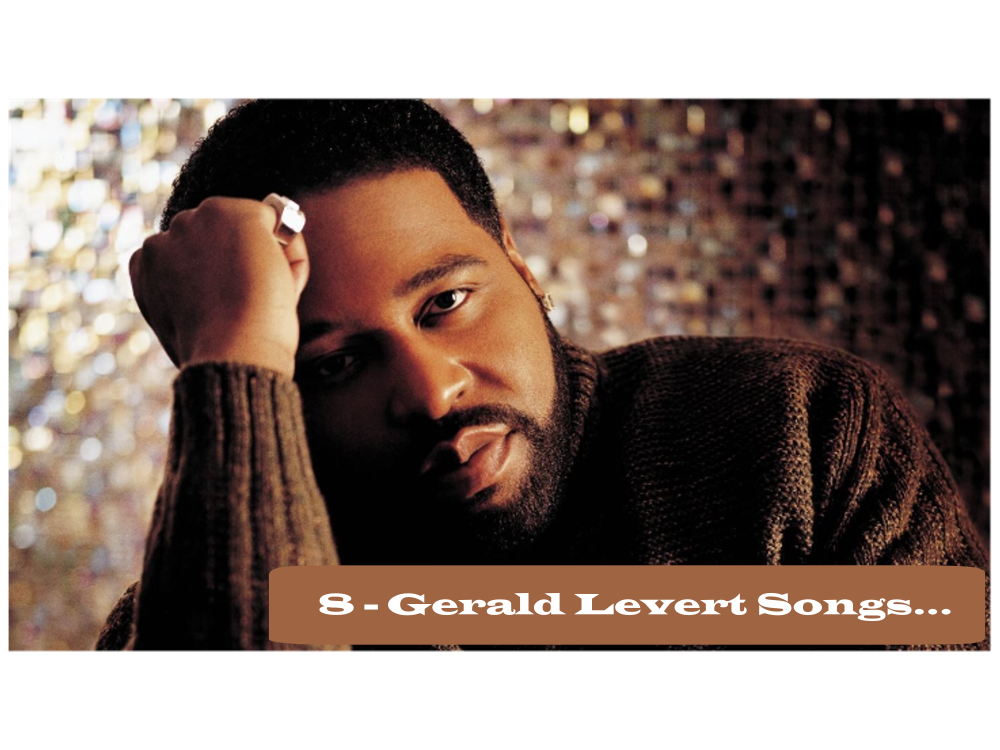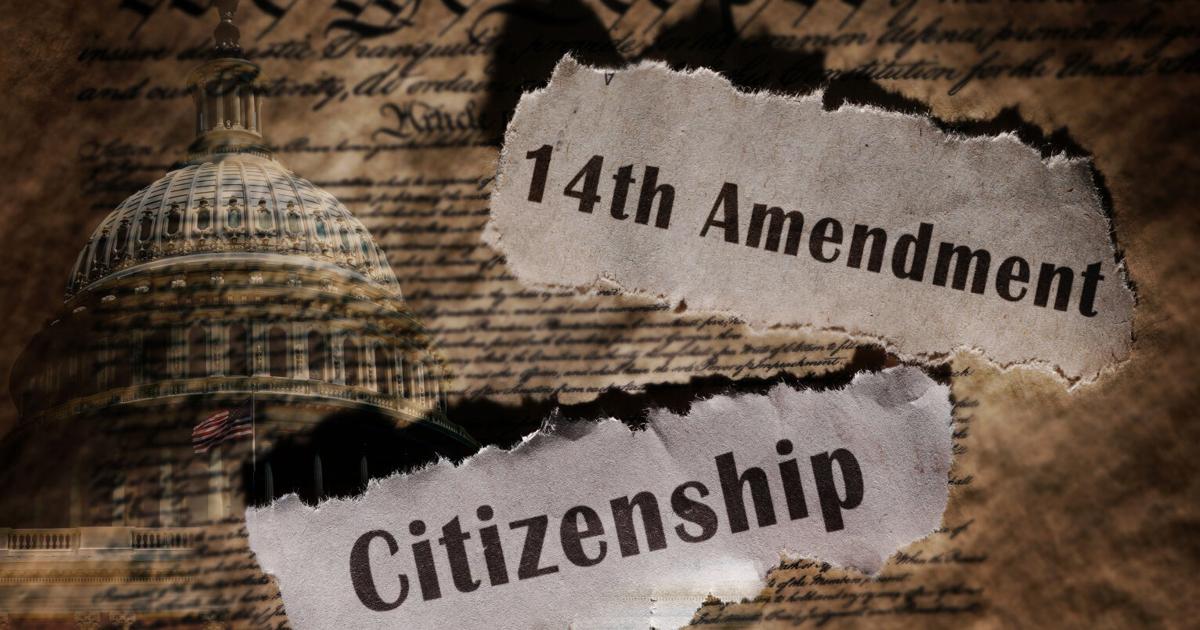(ThyBlackMan.com) did not attend Wednesday’s movie release of “The Help” from DreamWorks Pictures, based on the New York Times best-selling novel by Kathryn Stockett. Why, you ask? Because I read the book.
Last week New York Times op-ed columnist Frank Bruni saw an advance screening of the movie and referred to it as “…a story of female grit and solidarity — of strength through sisterhood.” He wrote, “The book’s author, Kathryn Stockett, told me that she felt that most civil rights literature had taken a male perspective, leaving ‘territory that hadn’t been covered much.’” What neither Bruni nor Stockett acknowledge is that the real territory remaining uncovered is civil rights literature written by the Black women who experienced it. 
I recently read The Help with an open mind, despite some of the criticism it has received. I assumed the book would be racially problematic, because for me, most things are. The novel opens on the fourth Wednesday in August 1962, at the bridge club meeting in the modest home of 23-year old, social climbing Miss Leefolt. The plot unfolds when her “friend” and the novel’s antagonist, Miss Hilly, the President of the Jackson, Mississippi Junior League, announces that she will support legislation for a “Home Help Sanitation Initiative,” a bill that requires every white home to have a separate bathroom for the colored help.
We learn early on that Miss Skeeter, the only bridge club lady with a college degree and no husband, opposes the idea. By page 12, she asks Miss Leefolt’s maid Aibleen, “Do you ever wish you could…change things?” This lays the groundwork for a 530-page novel telling the story of Black female domestics in Jackson.
The first two chapters were written in the voice of a Black maid named Aibileen, so I hoped that the book would actually be about her. But this is America, and any Southern narrative that actually touches on race must focus on a noble white protagonist to get us through such dangerous territory (in this case, Miss Skeeter; in To Kill a Mockingbird, Atticus Finch). As a Black female reader, I ended up feeling like one of “the help,” forced to tend to Miss Skeeter’s emotional sadness over the loss of her maid (whom she loved more than her own white momma) and her social trials regarding a clearly racist “Jim Crow” bill.
What is most concerning about the text is the empathy that we are supposed to have for Miss Skeeter. This character is not a true white civil rights activist like the historical figure, Viola Liuzzo (April 11, 1925 – March 25, 1965), a mother of five from Michigan murdered by Ku Klux Klan members after the 1965 Selma to Montgomery march in Alabama. Instead, Skeeter is a lonely recent grad of Ole Miss, who returns home after college, devastated that her maid is gone and that she is “stuck” with her parents. She remarks, “I had to accept that Constantine, my one true ally, had left me to fend for myself with these people.” (81) Constantine is Miss Skeeter’s Black maid, and it’s pretty transparent that Stockett is writing about herself. We learn this in the novel’s epilogue, “Too Little, Too Late: Kathryn Stockett, in her own words.”
“My parents divorced when I was six. Demetrie became even more important then. When my mother went on one of her frequent trips[…] I’d cry and cry on Demetrie’s shoulder, missing my mother so bad I’d get a fever from it.” (p. 527)
“I’m pretty sure I can say that no one in my family ever asked Demetrie what it felt like to be black in Mississippi, working for our white family. It never occurred to us to ask. It was everyday life. It wasn’t something people felt compelled to examine. I have wished, for many years, that I’d been old enough and thoughtful enough to ask Demetrie the same question. She died when I was sixteen. I’ve spent years imagining what her answer would be. And that is why I wrote this book.” (p. 530)
It would have behooved Stockett to ask her burning question of another Black domestic, or at least read some memoirs on the subject, but instead she substitutes her imagination for understanding. And the result is that The Help isn’t for Black women at all, and quickly devolves into just another novel by and for white women.
But when the novel attempts to enter the mindset of the Black women, like Aibleen or her best friend Minny, suddenly we enter the realm of the ridiculous. Although Stockett’s writing shows her talent, her ignorance of the real lives of the Black women bleeds through. Her Black characters lack the credibility reflected in Coming of Age in Mississippi, a 1968 memoir by Anne Moody, an African American woman growing up in rural Mississippi in the 1960s. Moody recalls doing domestic work for white families from the age of nine. Moody’s voice is one of a real Black woman who left her own house and family each morning to cook in another woman’s kitchens.
So instead of incorporating a real Black woman’s voice in a novel purported to being about Black domestics, the Skeeter/Stockett character is comfortingly centralized, and I can see why white women relate to her. She is depicted as a budding feminist, who is enlightened and brave. But in reality, she uses the stories of the Black domestics in the name of “sisterhood” to launch her own career, and then leaves them behind. In my experience, the Skeeters of the world grow up to be Gloria Steinem.
In a certain sense, The Help exemplifies the disconnect many Black women have felt from Feminist Movement through the second wave. For 20 years, I read accounts of Black women who were alienated from that movement primarily populated by middle-class white women. Black women have asserted their voices since the 1960s as a means of revising feminism and identifying the gap previously denied by the movement and filled by their minds, spirits and bodies. Yet, because I was born in the midst of the second wave and the Black Feminist Movement, I never felt alienated, myself, until the 2008 Presidential election.
It started with the extremely unpleasant showdown between Gloria Steinem and Melissa Harris Lacewell, (now Perry) surrounding Steinem’sNew York Times op-ed about then-Senator Barack Obama. This was followed by the late Geraldine Ferraro’s dismissive comments that Senator Obama was winning the race because he was not White. “If Obama was a white man, he would not be in this position. … He happens to be very lucky to be who he is. And the country is caught up in the concept.”
And even now that we have an elegant Black First Lady, I’m troubled that our popular culture obsession is with the “largely fictional” book,The Help. Sounds like an opportune moment for second wave feminists to engage in some serious deconstructionist critical analysis.
Or maybe not.
Once again, it seems that the sisters who make up the “sisterhood” are left to fend for themselves, while second wave feminists like Salon.com writer Laura Miller give a tepid analysis of the legal controversy surrounding the novel.
In February, Ablene Cooper, an African-American maid and babysitter working in Jackson, Miss., where “The Help” is set, filed suit against Stockett. Cooper accused Stockett of causing her to “experience severe emotional distress, embarrassment, humiliation and outrage” by appropriating “her identity for an unpermitted use and holding her to the public eye in a false light.” In her article, “The Dirty Secrets of The Help,” Laura Miller writes:
“Cooper’s lawsuit does manage to unearth two remarks from the novel in which Aibileen seems (arguably) to disparage her own color, but they are tiny scratches on an otherwise glowing portrait.”
Here’s one of those “tiny scratches” posted on ABCnews.com.
“That night after supper, me and that cockroach stare each other down across the kitchen floor,” Aibileen says in the book. “He big, inch, inch an a half. He black. Blacker than me.”
Laura Miller sees no problem with this, and focuses more on the depiction of the white women in the text:
“Although it’s difficult to believe that anyone would feel “outrage, revulsion and severe emotional distress” at being identified with the heroic Aibleen, her employer, Miss Leefolt, is another matter. A vain, status-seeking woman married to a struggling, surly accountant and desperately trying to keep up appearances in front of fellow members of the Jackson Junior League, Miss Leefolt is the one who insists on adding a separate “colored” bathroom to her garage. She does this partly to impress Miss Hilly, the League’s alpha Mean Girl (and the novel’s villain), but she also talks obsessively about the “different kinds of diseases” that “they” carry. Furthermore, Miss Leefolt is a blithely atrocious mother who ignores and mistreats her infant daughter, speaking wistfully of a vacation when “I hardly had to see [her] at all.” Like all of the white women in the novel (except the journalist writing the maids’ stories), Miss Leefolt is cartoonishly awful — and her maid has almost the same name as Stockett’s sister-in-law’s maid. Fancy that!”
Of course, Miller insinuates that the real life Aibleen lacks the agency to have initiated the lawsuit, and that Stockett’s sister-in-law surely coerced her.
I have never met the real-life Aibleen, but if she went to the grocery store yesterday, she would have seen that The Republic of Teaintroduced its new limited-edition The Help Tea – Caramel Cake Black Tea, and despite her educational background, she would have understood that she won’t get a cent of the royalties. According to the website, The Help Tea – Caramel Cake Black Tea, is inspired by Aibleen’s best friend Minny’s famous caramel cake. The tea is being marketed to drink with friends in celebration of a movie where a “remarkable sisterhood emerges.”
What no one wants to acknowledge is that the fictionalized Skeeter leaves the Black domestics in the South—similar to the white freedom riders during the Civil Rights Movement. In real life, after appropriating the voice of working class Black women, profiting, and not settling out of court, Kathryn Stockett admits in a Barnes and Noble audio interview that even her own maid was not fond of the novel: “My own maid didn’t really care for it too much, she said it hit a little too close to home for her,” Sockett reports seven minutes and 35 seconds into the 10 minute interview with Steve Bertrand. So, in the end, The Help and the lawsuit are about white women who don’t want true sisterhood. They just want Help.
Written By Duchess Harris
Official website; http://www.SisterScholar.com/

















Blacks are more enamored of their own suffering than Jews. The difference, though, between blacks and Jews is mainly that Jews as a group are the most intelligent on the planet, and blacks as a group are the least. This is evident everywhere one looks and is honest. For F’s sake, the guy who runs this blog calls himself “Dr.” yet makes mistakes that a white high school student might. E.g., a “mute point”? You would never see a Dr. Greenberg or Dr. Stein make a mistake like this. And the commenters here are even worse. Blacks are hopeless and will always be whining victims.
Young people please do not get sidetracked. It has been said that one who does not know where he/she came from (or history) is bound to repeat it. There are so many that tell me, the problems are not as bad as we make them. Please keep in mind the time in history and what was available to Blacks at that time. There was only one Madam Walker that we are aware of. Because of the lack of education, domestic work was the only work most Black women could get back then. One of the ladies was concerned about getting her sons in college and this was true to the time. I think that we should take our children to see this movie so that they will be aware of where we have come from. So many of our people are reaping the rewards that many had to work for. I remember when I was around six (6) and my Mother (who was a public school teacher) took me downtown and gave me a $5.00 bill to pay the electric bill. She was there standing by the door as I tip toed to reach the counter and give the white lady our money. When she gave me the change, I said “excuse me but you gave me too much money.” That lady became very upset and called my Mother over to tell her that she needed to teach me how to talk to white people. When she put the correct change on the counter, she pushed it out over the floor. Who was the leader; who was the star; who got credit for doing this or that is not important? The fact of how things were and we do not want to return this anything close that that era. We should be more concern about stopping our children from having children and getting our young boys to pull up their pants and study to get an education.
That is an article by one of my writers… It’s just that, and I do stand by my comment… I have no times for games… So we shall end it here…
Staff,
ThyBlackMan
Now I’m not black cause you don’t really understand what we went thru to get you here. You more like a dumb mute. You have no good points you have lazy excuses to wine. What a disgrace.
Stay on topic and we shall leave it at that… If not one is click away from getting thy “IP” ban…
Have a nice day…
Staff,
ThyBlackMan
To Staff: Brutha please! What kind of a low down comment is that?
How do we know you black?? So it’s a mute point…
Staff,
ThyBlackMan
Harris stowe… it was not intended for anyone but African Americans. What you have nothing to say about the rest of the list. ? Just the college. Son you anit no better then a white person making money off our history. you doin the same cause you wasent no part of it. FYI did ya’ll know Jews and Irish people were slaves too. Step off thy black man soap box unless you want to include them too. I don’t see that point in segregation laws. You youngens trying to keep segregated. All that damn work and we still takin about the black man the black community. This old black women thinks ya’ll don’t understand how good you got it. I don’t feel sorry for generations after me. What you waiton a big free pay check for bein black.
My father used to tell us kids, “you can get stuck in the mud, or you can move on.” I’ve chosen to move on.
What only black colleges? No HBCU is 100% black… To top that off they are more diverse then any of the state colleges that are still 90% or more white…
Staff,
ThyBlackMan
Scooter is you that concerned about white people making profits of blacks. Then stop talking and right your own book. Obviously this women knew something, something more then you do. I lived it. And seeing a book an movie bout it don’t matter to me she was a white women that wrote it. What you want this white women’s opinion on the help from the other side. You sure as Hell wouldn’t wanna hear about that now would you. White people are patient with all this extreme sensitivity blacks have and all the black only colleges, grants, magazines, bet, fubu, groups, associations. What if white people did all that huh? Answer me that one. You all would be so damn mad and callin them racists. Hell if they had a united white fund, or a college, whitey’s magazine, C.E.T/W.E.T,… Ya’ll run your mouths not knowing truth only hand outs and excuses of why you is poor and lazy. I worked in the 60’s and I lived well. AND STILL DO. what’s the problem now.. no ones stopping you but you. Take your blinders off.
It is sad to see that some of us have no compassion for our history and for our current pain. It is funny to see that nobody says to Jewish people stop complaining about what happened from 1939 until 1945 and for us who went through hell for centuries we have no right and no place to express our pain. And the people who think that racism is something from the past are naive or have been brainwashed.
Ok I have read the book. Bein from Mississippi and also a black women that lived to see the 60’s as an adult women an also a house maid. For a white family which there was many of. The book did not make “skeeter” out to be no hero. If any of you were alive working black house maids in the 60’s ya’ll know damn well what them black women in the book/movie if real were life brave strong and bold. Not “skeeter”. Oh and please don’t brings Obama in none of this.
What ya’ll won’t except is he doesn’t have this slave mentality like we do/did. He don’t come from the same background as us. He white. I’m 67 year old and I’m sick to death of these young folk whinning and crying about somethin that another never happen to ya’ll. Go get you some jobs education and self respect. I did and I had it a lot harder them you spoiled lazy brats using peoples pasts like mine for a hand out, reason to complain. Don’t no one owe not one of you nothin. Hell no one owes me nothin I worked hard taught myself to read and write. I wish you young proud blacks would do for your self and stop your whinning. What did you go thru? Someone call you the n word.
Get over it. I’m no racist whites made me a wealthy women. They taught me bout money how’s to save they educated me and god damn it they loved me and I loved them right back. I still talk and meet with my misses. We are better friends then and black women has been to me. All ya’ll is just as racist as you think the whites are. It you holding you back not no damn white person. Stop your whinning we didn’t change things so ya’ll could be useless racist brats lazier then a slug.
Hypocrites is what you is. SOME OF YA’LL NEED TO GO TO AN EDICTS CLASS AND GET YOU SOME CLASS. quit tryin to be so different. Your not cool with you gang and whore looks you got going. No job? Dress normal talk like you know how to read go to school and don’t run your mouth about the past that you dont won’t and will never understand.
I can’t stand the official picture above of the movie! Even, if they paid me for millions I would not accept it. It comforts White people to see us as maids and submissive. In the sixties they were paid $5 a week when the income of those Wasps was $100 000 a year. Right now Black people have 2% of the White wealth. They always exploited us and probably always will. It is time for us to wake up, to create our own economy and to make sure that our money stays in the black community. Madam CJ Walker made it at a time when it was almost impossible. She became the first woman of all origins in America to become a self-made millionaire and she created jobs for the black community. Why don’t we follow her path? By the way, why Hollywood doesn’t produce a movie about Madam CJ Walker? Of course, I know the answer. They can’t stand and won’t show powerful and intelligent black women. This would create cognitive dissonance among them! They will never show a big motion picture with a leading role which portrays a character like an African-American female psychiatrist (with her own family, in other words not asexual) because they have to perpetuate their sick myth about our so-called inferiority!
I hate it that as black people, we believe that today – in 2011 – the only way ANY story whatsoever involving us must be told by us. Just sad. The book was well-written and engaging. All of the hate is just well, ridiculous. It’s about time to stop making everything about color. I’m not saying that racism isn’t alive and kicking. But haven’t we become just as racist as the person we are pointing the finger at when we cannot enjoy a piece of FICTION when written by a white person about black people. Seriously dude. You need some Help.
Interesting that you condemn the fact that the white character of Skeeter “has to be” the leader of the stories of the black women, a la Atticus Finch and other stories where the white people are depicted as “heroes.” Yet you condemn the same character for leaving in the end. Also interesting, you assume the author did no research and that because of her skin color, could have no real knowledge of the times or experiences of other women outside her immediate circle, same as the Skeeter character. You seem to say that the only way this story could be authentic is if it were true and if it were written by a black woman. Often in visual arts we see a painting and say, “I could have painted that!” The fact is, we didn’t. Stockett thought of it, did it, and now it exists and it is true enough to open a dialogue and that is a good thing. Furthermore, you worry and wonder why focus on “these” women when we have an elegant first lady of African American heritage.
Why would we overlook these women and their sacrifices? Your statement about the First Lady also resonates with me because we in America tend to pay too much attention to movies and music–all popular culture–and not enough to real issues and current events. It is no wonder that a movie can stir emotions, but the story was there for the telling all along. There for the consideration and eye opening. It may make some people uncomfortable and it may not be perfect but it is thought provoking enough to create discussion and that is a good thing. Not all paintings are meant to be pretty, either.
Are you serious? Speaking as a white female I do not believe the book or movie made Skeeter out to be a hero of any kind. She may have been portrayed as being different than her white counterparts but not the hero of the story. If anything the story portrayed the black maids to be the heroes through their courage and tenacity.
The book and move are simply more profeterring off blacks. I read that the director Tate Taylor bought a slave plantation with his money off this film. Has he no shame?